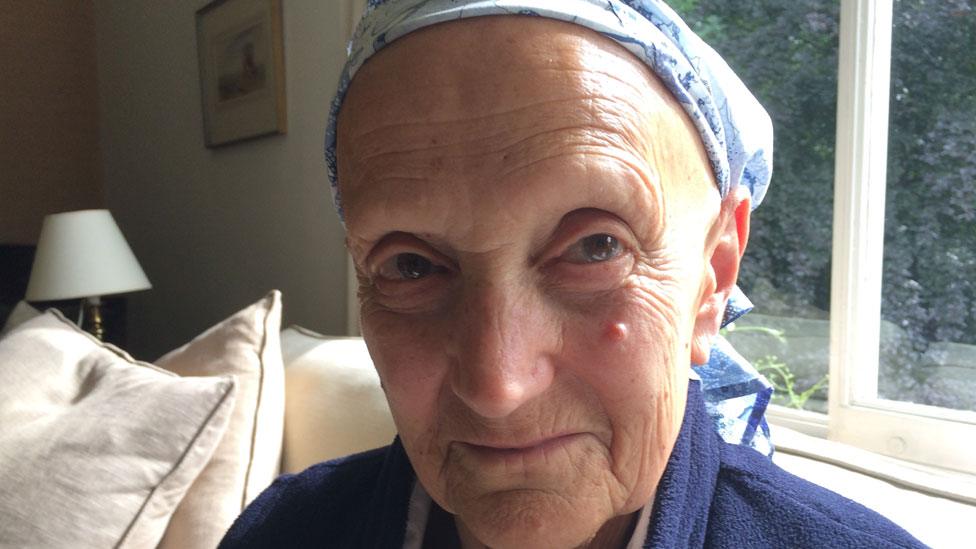Rosalind Franklin centenary: 'She would have been totally amazed'
- Published
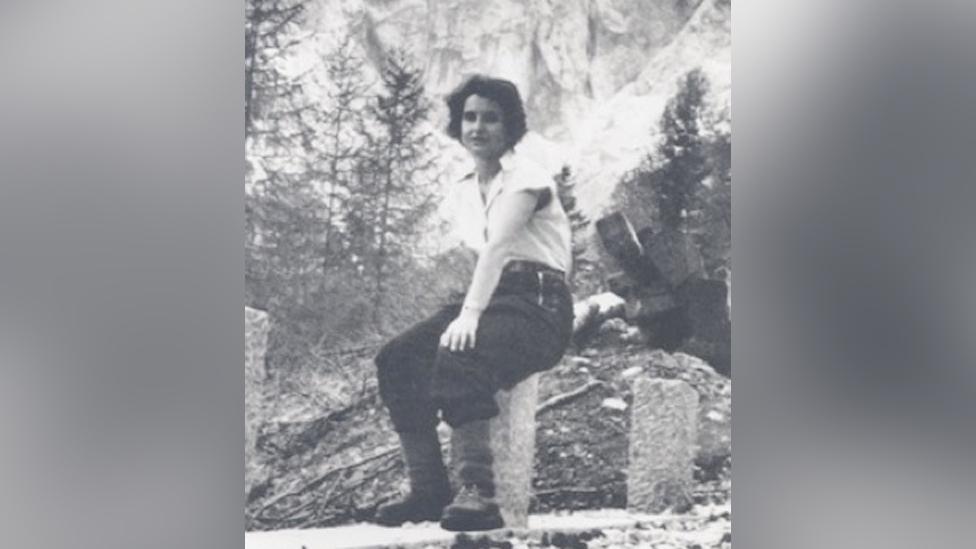
Rosalind Franklin played an integral role in the discovery of the structure of deoxyribonucleic acid (DNA)
Scientist Rosalind Franklin would have been "totally amazed" that 100 years after her birth she is being commemorated, according to her sister.
She is best known for her pioneering work which guided Francis Crick and James Watson to unlock DNA's secrets.
But far more of her short career was spent unravelling the molecular structures of coal and viruses.
Jenifer Glynn, 90, said she would have been pleased if her career "encourages girls into science".
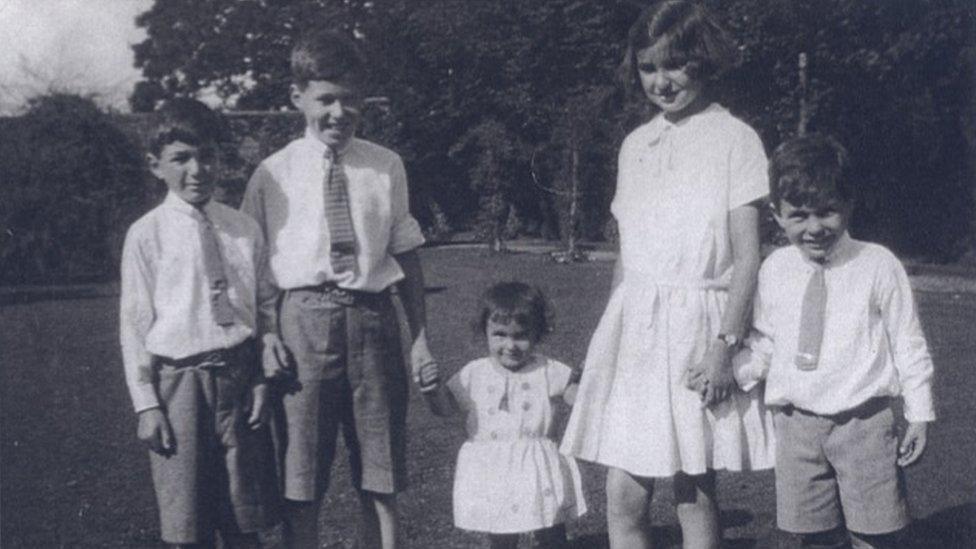
Rosalind, second on right, holding her sister Jenifer's hand - who would follow her sister to Newnham College, Cambridge
Rosalind Franklin was one of five siblings who grew up in London.
She secured a place at the University of Cambridge to study chemistry in 1938, and charted her life there through weekly letters home.
Mrs Glynn, who lives in Cambridge, said: "She always wanted the proof of things - while she was a good all-rounder at school, it was clear from the start she was going to be a scientist.
"There was no feeling in the family or at the university that it was odd for a woman to study science."
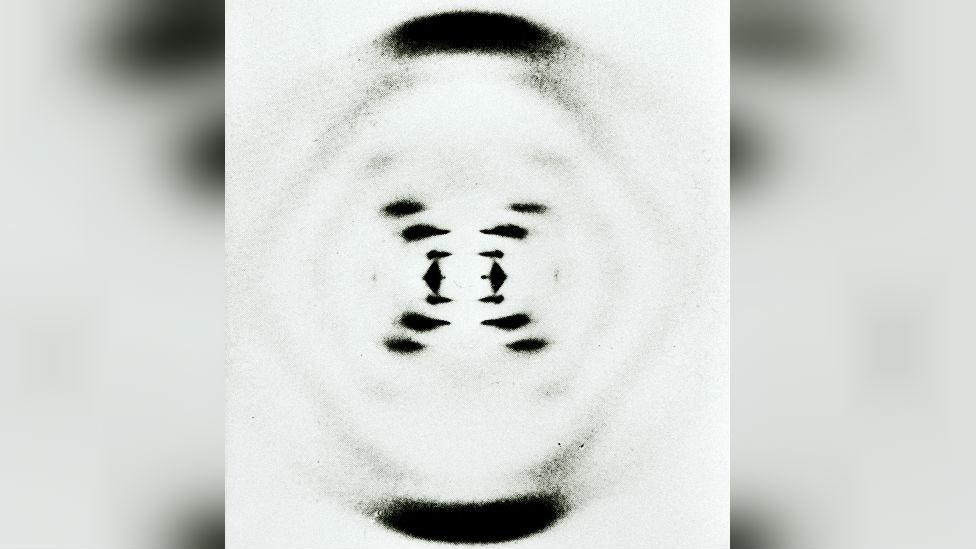
Her X-ray images helped James Watson and Francis Crick to decipher the double-helix shape of DNA
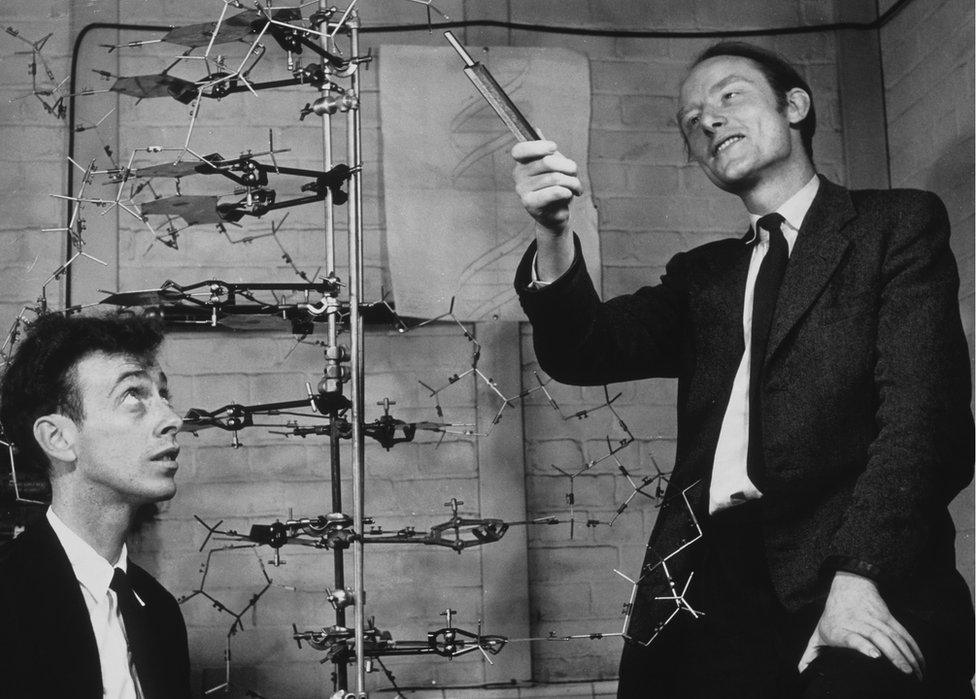
James Watson and Francis Crick with their model of part of a DNA molecule in 1953
Most of her time at Newnham College was taken up with her studies, but once World War Two broke out she described interrupted nights spent in the college air raid shelters and taking her turn as a fire watch warden.
Mrs Glynn said before her "sadly early death" aged 37 in 1958, she worked across biology, chemistry and physics, with a "focus on research that mattered to society".
"I think she would be totally amazed at the fact that 100 years after her birth there's such commemorations," she added.
"She would have also been amazed at the idea she has become a feminist icon - it was not in her mind at all.
"She was aware that it was harder for women, but wasn't trying to blaze a trail, although nothing would have pleased her more than the fact that perhaps it encourages girls into science."
Newnham College and the Churchill Archives Centre in Cambridge, which holds her scientific papers, are marking the centenary of her birth on 25 July.
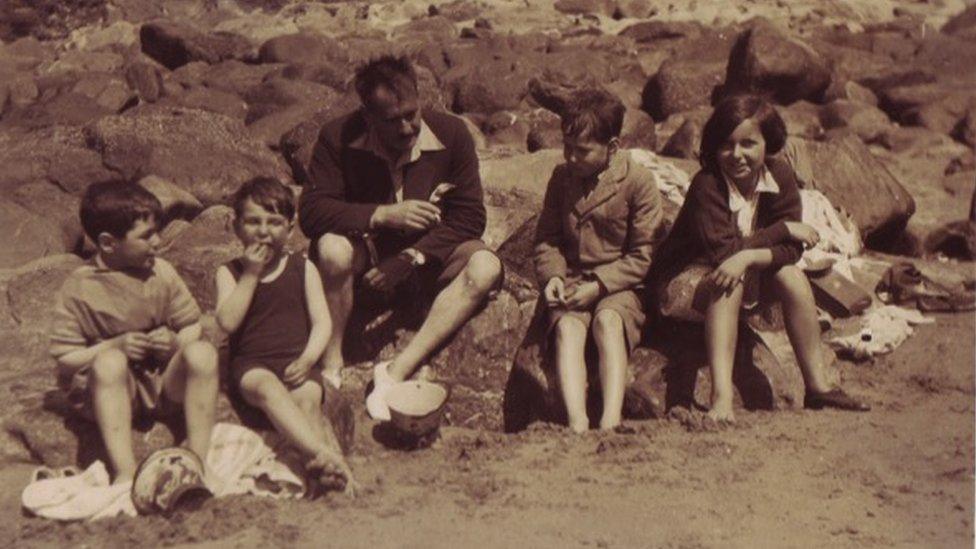
Rosalind (far right) on holiday with her brothers and father

Find BBC News: East of England on Facebook, external, Instagram, external and Twitter, external. If you have a story suggestion email eastofenglandnews@bbc.co.uk
- Published7 February 2019
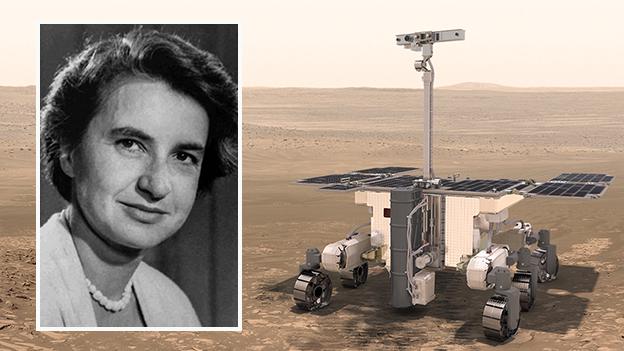
- Published10 October 2017
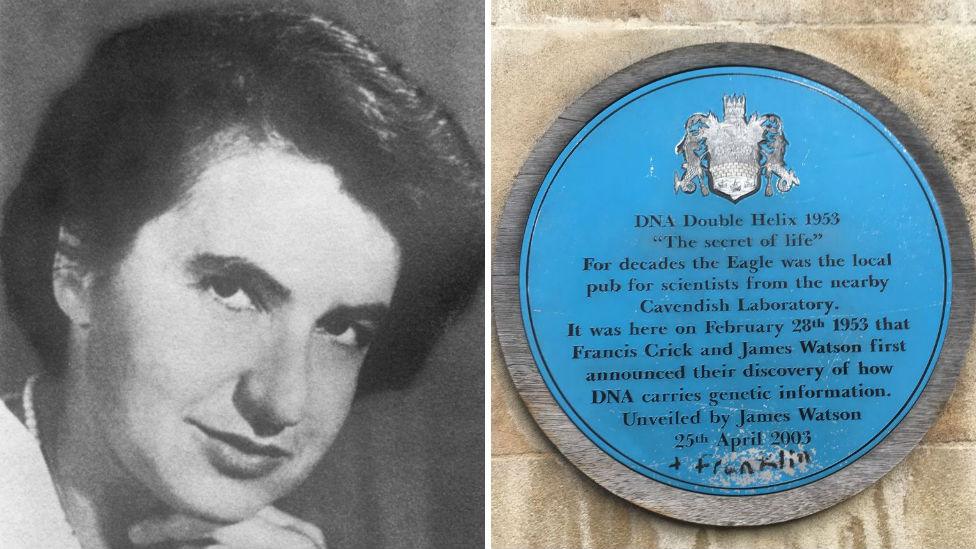
- Published14 September 2015
